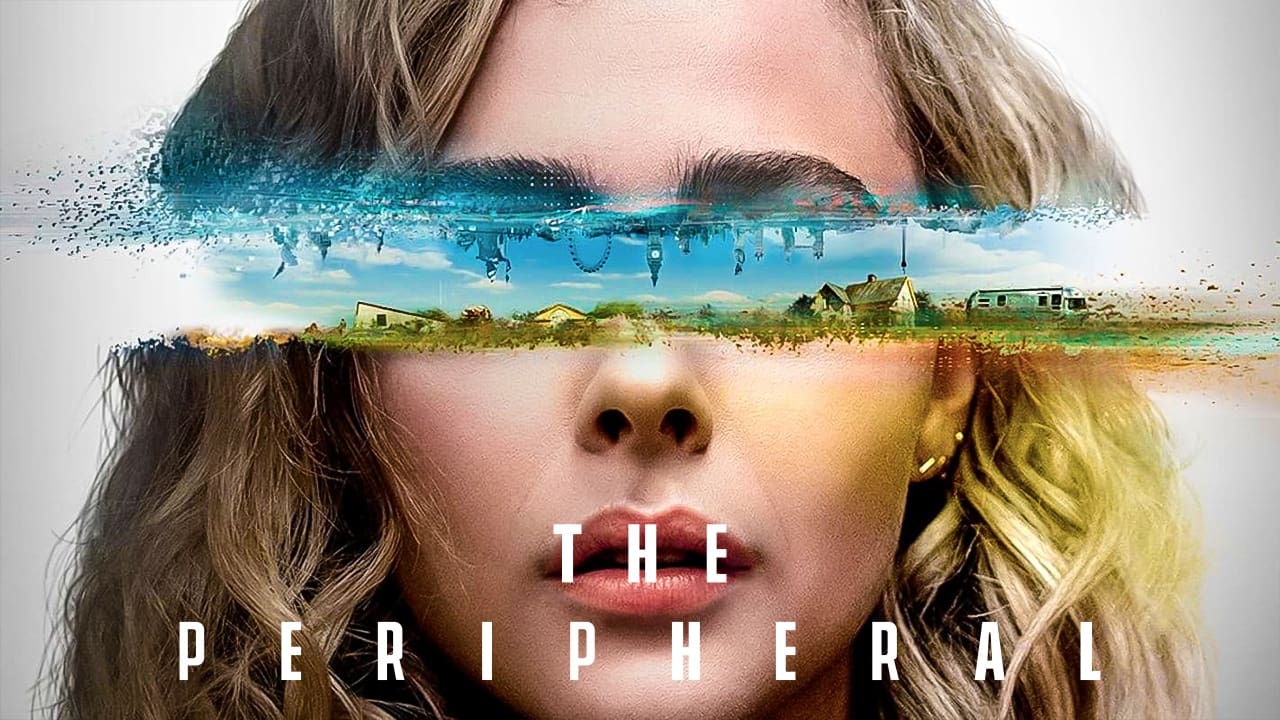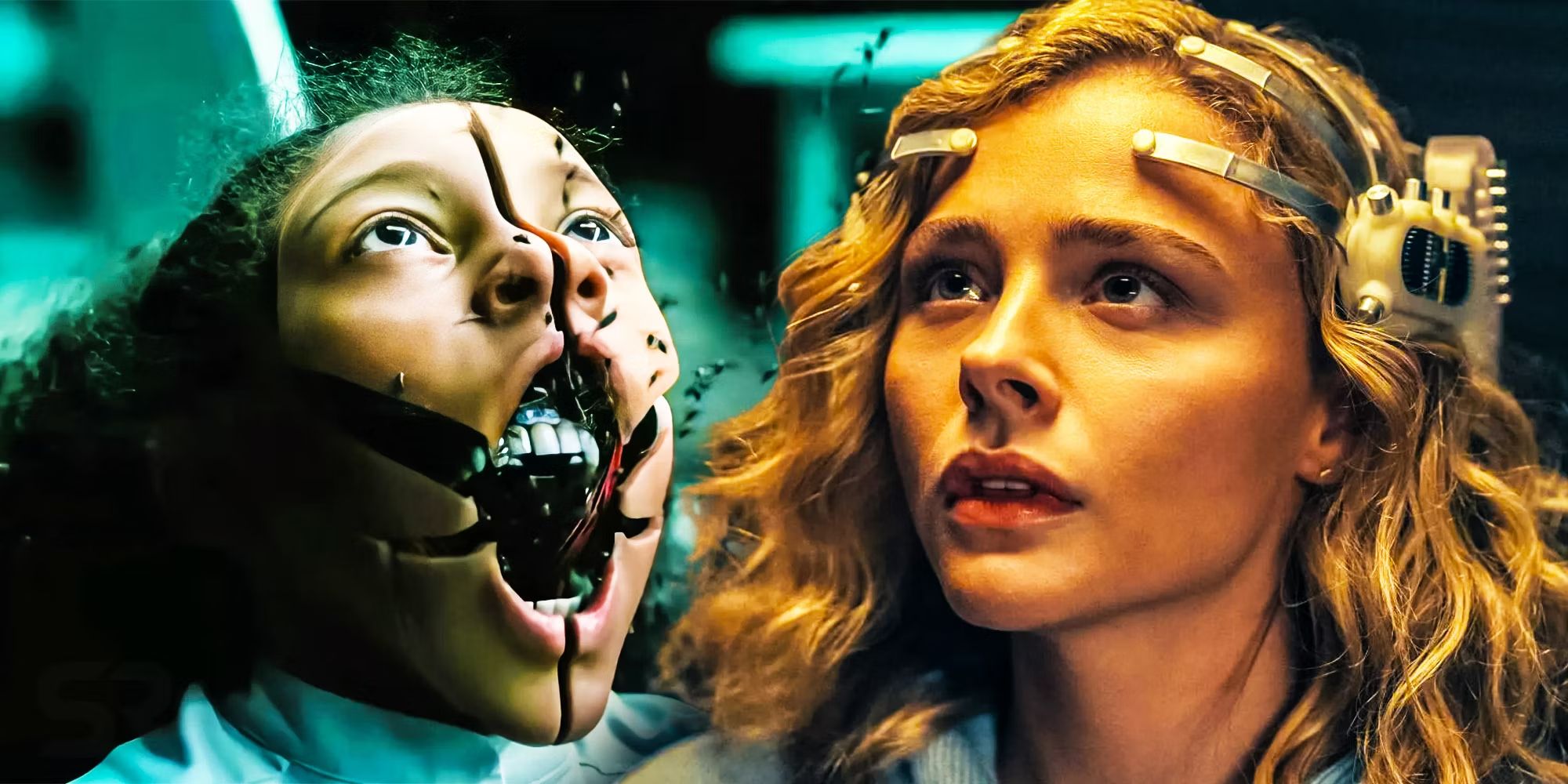“The Peripheral” (2022)
- music
- September 18, 2024

“The Peripheral” (2022), based on William Gibson’s novel, is a mind-bending sci-fi series that delves into the complex interplay between technology, virtual reality, and human consciousness. Produced by Lisa Joy and Jonathan Nolan, creators of Westworld, the series is set in a near future where advanced technology, virtual reality simulations, and time manipulation collide to create a gripping narrative about control, power, and the future of humanity.
The protagonist, Flynne Fisher (Chloë Grace Moretz), is a young woman living in a small town in rural America in the year 2032. Flynne’s world is a bleak one, filled with economic disparity and the decay of social structures, but she escapes her struggles through a form of advanced virtual reality gaming. Her brother Burton (Jack Reynor), a former marine, introduces her to a mysterious new VR system, and when Flynne tries it out, she finds herself controlling a futuristic robot body in a hyper-realistic version of London 70 years in the future. What initially appears to be an exhilarating game soon turns into a dangerous mission, with Flynne discovering that this virtual world is real—and that she is now entangled in a conspiracy that spans both timelines.

One of the central themes of The Peripheral is the notion of “peripherals,” which are artificial bodies that can be controlled by human consciousness. These peripherals allow people from one time period to experience life in another, creating an intriguing exploration of identity, agency, and the ethical implications of inhabiting other bodies. Flynne’s journey is not just about navigating this futuristic world but also about the transformation of her own sense of self as she begins to question the nature of reality, her autonomy, and what it means to be human in a world where technology can manipulate every aspect of existence.

The series is deeply layered with questions about the future of technology and its impact on society. Set across two timelines—the gritty near future of 2032 and the polished, dystopian world of 2099—The Peripheral uses these dual settings to explore the growing gap between those who control technology and those who are controlled by it. In 2032, Flynne and her family struggle with the effects of economic hardship, while in 2099, the wealthy elite have harnessed advanced technology to reshape the world to their advantage. This contrast highlights the increasing disparity between the haves and have-nots, with technology serving as both a tool of oppression and liberation.

Visually, The Peripheral is a stunning achievement. The futuristic London of 2099 is a sleek, cyberpunk-inspired cityscape filled with towering skyscrapers, autonomous drones, and advanced AI systems. In contrast, the rural America of 2032 is marked by decaying infrastructure and a sense of decline. The show’s ability to juxtapose these two worlds creates a striking visual and thematic contrast, underscoring the series’ examination of technological advancement and its consequences.
At the heart of the series is Flynne’s journey from a small-town gamer to someone who is thrust into a much larger, more dangerous world. As she becomes more deeply involved in the events of 2099, she uncovers a plot that could have catastrophic consequences for both her present and the future. Her character development is one of the show’s strengths, as Flynne evolves from a reluctant participant into a key player in the fight against a powerful, shadowy organization that seeks to control time and reality.

In addition to the action-packed plot and high-concept ideas, The Peripheral also delves into complex relationships and emotional stakes. Flynne’s relationship with her brother Burton, her family, and the people in her town adds emotional depth to the story, grounding the high-stakes sci-fi narrative in personal struggles and real-world issues. This balance between high-tech intrigue and human emotion is what makes the series compelling and relatable, despite its futuristic setting.
The show also raises important philosophical questions about the nature of reality, memory, and identity. As Flynne and other characters spend more time in the future through their peripherals, they begin to question which reality is “real” and what it means to live in a world where human consciousness can be transferred across time and space. This exploration of virtual worlds and their impact on identity echoes themes found in other science fiction works like The Matrix and Westworld, but The Peripheral adds its own unique spin by intertwining these ideas with questions about time travel, alternate realities, and the consequences of tampering with the future.

In conclusion, The Peripheral is a thought-provoking and visually stunning series that blends high-concept science fiction with personal drama and action. Its exploration of virtual reality, advanced technology, and time manipulation offers a deep and complex narrative that challenges viewers to think about the ethical and philosophical implications of the future we are creating. Through its dual timelines and compelling characters, The Peripheral raises questions about the nature of reality, the impact of technology on society, and the choices we make in shaping our future.











